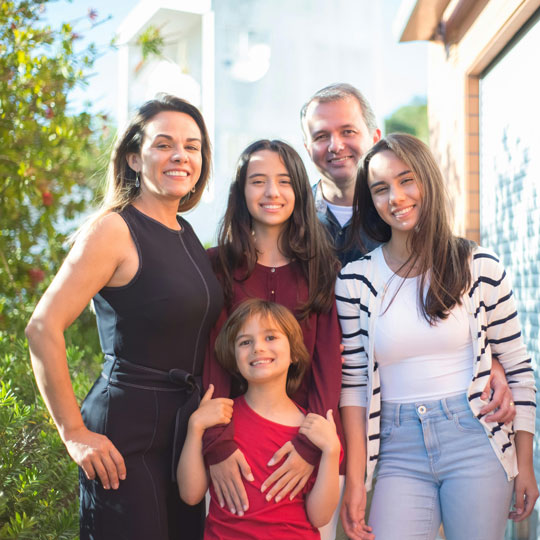Services to Teen Parents
Teen parents face significant challenges, including higher rates of poverty, mental health issues and educational barriers. The Children’s Services Fund addresses these critical needs by supporting programs that provide resources for young parents and their children. Through this support, the CSF empowers teen parents to build healthier, more stable futures, breaking cycles of poverty and improving outcomes.
Guiding Teen Parents to Build Brighter Futures

Supporting teen parents is essential for addressing their unique challenges, including housing instability, educational barriers and mental health needs. With as many as 60 percent of teenage mothers living below the poverty line and 80 percent relying on public support at some point after a teen birth, services such as temporary housing, educational support, job training, and mental health counseling are crucial.
In Missouri during 2022, there were 3,269 births to teens ages 15 to 19, with rates in Jackson County well above the state average. We have an urgent need for services that protect and support these young parents and their children. Collaborations with organizations in our community improves mental health support, strengthens educational initiatives and empowers families to break cycles of poverty. By offering tailored services, our partners enable young service recipients to improve parenting skills, as well as, parent child relationships while pursuing education and employment opportunities that lead to brighter futures for themselves and their children.

Explore our current services for teen parents partner organizations.
Investing in Services for Teen Parents Strengthens Jackson County
Healthier Kids
Supporting parents ensures children have the resources they need during critical early stages of brain development.
Successful Parenting
Comprehensive support empowers teen parents to thrive, at home and in school, leading to higher graduation rates and stronger family outcomes.
Stronger Community
Tailored support for teen parents breaks cycles of poverty, contributing to community growth.
The CSF difference
As a voter-approved, tax-funded program, the CSF works to elevate and “raise the tide” for everyone working to support kids in Jackson County. Investing in home and community based intervention services, our partners, their programs and collaboration for innovation is what’s best for our kids — and our community.
Validating impact
Ensuring effectiveness
Creating community
Learn more about our funding strategy.
Learn more about our partners providing services for teen parents

CSF and Mother’s Refuge Redefine Teen Maternity Care for Children’s Well-being
CSF and Mother’s Refuge partner to redefine maternity care for teen mothers and pioneer a transitional living program to ensure the well-being of Jackson County’s youngest citizens.
1 “Are home visiting programs effective in reducing child maltreatment?” Casey Family Programs. 27 September 2022. Accessed 4 May 2023. https://www.casey.org/home-visiting-programs/
2 Reynolds AJ, Temple JA, Ou S, et al. Effects of a School-Based, Early Childhood Intervention on Adult Health and Well-being: A 19-Year Follow-up of Low-Income Families. Arch Pediatr Adolesc Med. 2007;161(8):730–739. doi:10.1001/archpedi.161.8.730. Accessed 4 May 2023. https://jamanetwork.com/journals/jamapediatrics/fullarticle/570882
